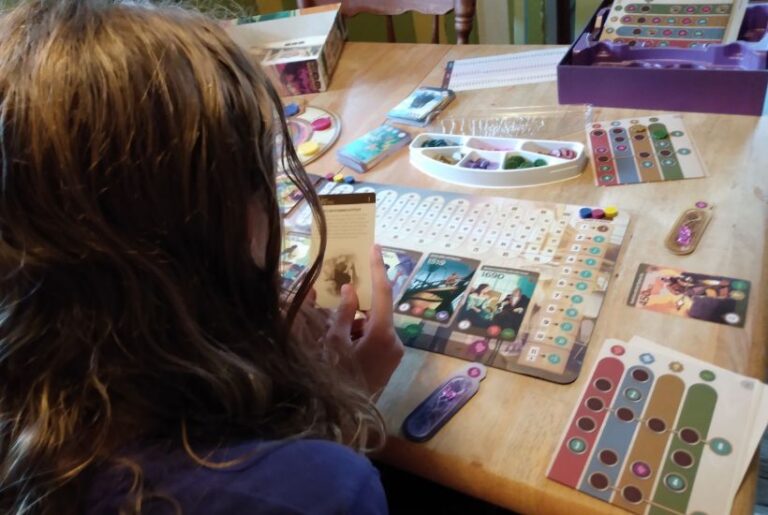How to Homeschool in a Crisis
This post may contain affiliate links. For more information, please read my disclosure policy.
Are you attempting to homeschool in a crisis?
It’s one of those seasons where you just can’t get into the flow of the homeschool. Subjects stagger along.
And those grand and glorious plans you made last summer are destined for the trash heap.
The trick to homeschool in a crisis is to return to the basics.
What do I mean by basics?
I mean reading, writing, and arithmetic. Even for high school students, this core can guide you through a rough patch.
Yes, seriously, cut back to reading, writing, and math.
Ensure those three items get done every single school day and call it good. If you can, schedule them for first thing in the morning.
Homeschool in a crisis: Reading
Children just learning to read need to keep moving with their reading lessons. Sit down and run through phonics.
The goal is for our little ones to become independent readers as quickly as possible.
Older children can sit and read a book for an hour or two during quiet time. Don’t try to make it complicated during a chaotic season.
Just have your child sit down with a book and read.
High school students are a touch harder to return to the basics with as they need to accumulate credits to graduate.
You have a few options here though.
- Have your high school student spend an hour or two reading great books. Depending upon the topic of the great book, this hour or two can run towards history, science, or literature credits.
- Encourage your teen to read one of the Great Books.
- Assign history books to be read.
- Spend time working through their science textbook.
This keeps high school students moving forward while giving you extra time during this season of crisis.
Your teenager will keep adding hours towards an English, history, science, or an elective credit during this time.
Homeschool in a crisis: Writing
Young children can work on their penmanship books, or you can pick up coloring books.
Coloring books are wonderful because they help the kids develop fine motor skills for handwriting.
Older children can sit and write in a journal every day for 15-20 minutes.
Another option to return to the basics in writing is to have the children outline or write a short paper every week.
While there are writing techniques that need to be learned, there’s much to be said for the benefits of sitting and writing every day without fail.
High school teens should be writing about whatever they’re reading about or simply sitting down and writing for an hour.
They can work on a book, write a short essay every week, or simply journal about the events in their life.
Keep track of the hours your teens write. Again, these hours can apply to English, history, science, or elective credits.
Homeschool in a crisis: Math
Much as my children would say we can skip the math, we can’t even while we’re homeschooling in a crisis.
Children simply must reach a collegiate level of math in order to have options as they reach adulthood.
Young children are the easiest. Set them loose with puzzles, math manipulates, and games.
Let them sort the silverware and count the place settings on the table. For that matter, try M&M math just for the fun of it!
Older children are a bit harder to return to the basics in math. So the trick is to do one math lesson a day.
Your kids can sit at the kitchen table while you clean the kitchen, or everyone can gather in the schoolroom for a short period.
Sit down and do math first thing in the morning and get it over with.
High school teens also need to keep up on their math skills when we return to the basics in preparation for the standardized tests and their future studies.
Again, this simply becomes a question of sitting down and getting it done.
Not the most exciting method in the world, but concentrating on doing a math lesson, or even half of a lesson each day does work.
You Need time to homeschool in a crisis
The nice thing about returning to the basics in your homeschool is the freedom it gives you.
You have time to deal with the crisis that is erupting.
Your children are still moving forward in the critical skills of reading, writing, and arithmetic.
And the habit of homeschooling is maintained in both you and the children.
Later, when life settles down, you can pick up other subjects formally.
Your high school students may need to pick up another credit or two, but you can find a fun course to study over the summer.
Just concentrate on getting science completed when you homeschool in a crisis.
Older high school students often have personal educational goals they’re working for and can work independently to make up for any lost time.
Concentrate on moving forward.
Later you can add in more subjects and bring the homeschool back up to speed. Later when you have time to breathe.
And just remember, you can homeschool in a crisis!
Recommended Reading
Books:
- Building Your Perfect Homeschool in Just 13 Weeks
- You Can Do This: 21 Days of Encouragement for the Weary Homeschool Mom
Links:
- Put Your Homeschool on Autopilot
- 10 Bad Habits You Need to Break for Successful Homeschooling
- The Secret to Scholé in High School










It’s so true! Homeschooling through life means flexibility.
I’d have failed at homeschooling long ago if it wasn’t for flexibility! 😉
Although I cannot speak from experience, as my daughter is only two years old and I went to public school, this seems like wonderful advice. It is something I will keep in mind in the future. Even if I don’t choose to home school, I fully intend on supplementing school work at home when the time comes!
If kids can read, write, and do their math, they’re well on their way. Those are the courses colleges offer in which remedial work. 🙂
We had a basic week this past week. It was just the thing we needed. Thanks for sharing.
Sometimes a basic week is just what the doctor ordered!
Fabulous tips! We’re really working on writing and penmanship right now. A journal really helps!
Thanks for sharing (and for linking up to the #SHINEbloghop).
Wishing you a lovely week.
xoxo
Yes! I need to be reminded of this lately. I’m feeling overwhelmed and then I get down on myself when we don’t get it all done. Thank you for posting this! I think we are going to ease up this week so we can all catch our breath! 🙂
Sometimes we do need a down week or two to catch our breath! Hope things even out for you, Kalista. 🙂
As a veteran homeschool mom of over 16 years, I can attest that this is excellent advice! While some seasons in school are fruitful and overly productive, some are not. Life happens and sometimes school suffers in the traditional sense. The good news is that even though I have had my fair share of “back to the basics” seasons, my kids overall education never suffered in the long run!
We’ve had many times of back to the basics, and you’re right, Bekki! Amazingly, the kids’ education never suffered. In fact, they often made great strides in the basic skills. 🙂
Thanks for sharing your wisdom! I am learning to be flexible and OK with times of not getting as much done as I wish. =)
It’s hard to learn to be flexible, but sometimes life turns chaotic. 🙂
Thanks for this. In Australia the school holidays start mid December and continue until the end of January. I always struggle to keep our schooling going but I am trying this year to do the basics like you suggest, reading, writing and maths. Thanks for linking up at Good Morning Mondays. Blessings
The basics are a great place to start. As everyone gets back into the swing of school, you can add more. 🙂
This is exactly where we are right now. Our basics vary a little depending on the child, but it’s giving me time to breathe and heal.